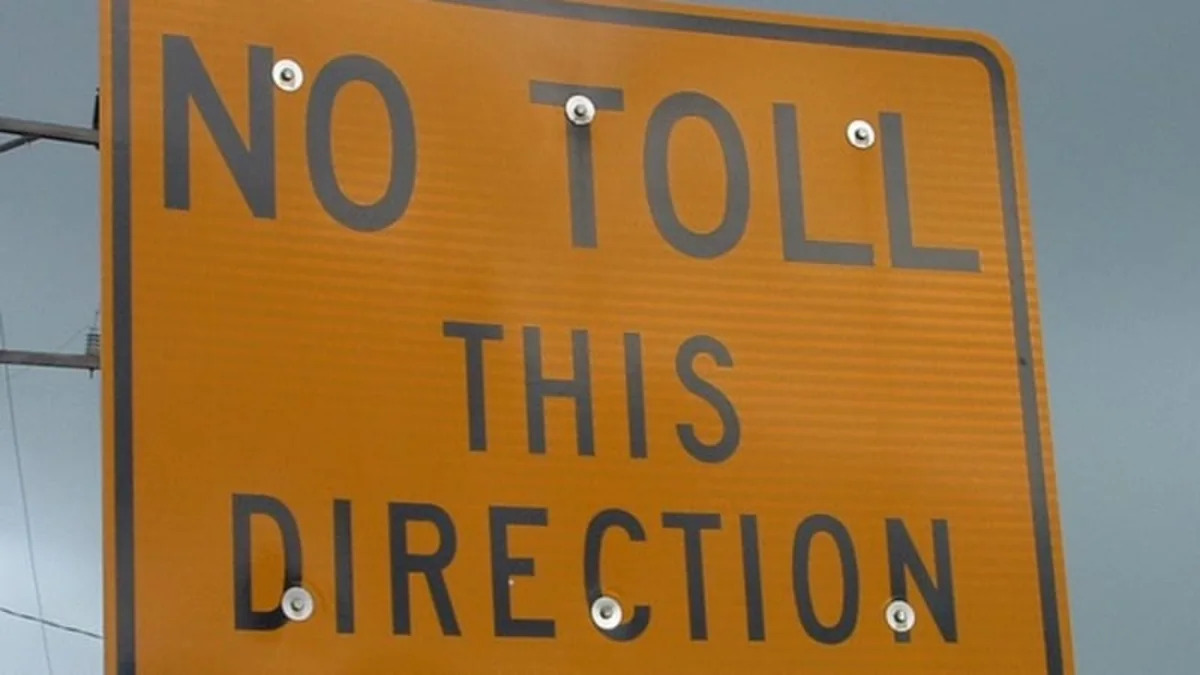Governments need to pay for things, and when traditional sources of revenue decline, other sources are found. To deal with the urgent needs of the highway infrastructure system and, if possible, add capacity, states need a lot more money than they currently have. Unable to get more from Congress, since Congress remains opposed to raising the gas tax, states are asking for the right to skip the gas-pump middleman and go straight to your wallet in the form of toll roads.
Beyond the recession, the reasons for busted highway and infrastructure budgets are manifold, from people driving less – and so less collected in gas taxes, to more fuel efficient cars – requiring less gas and so again, less in gas taxes, to roads and bridges that cost more to construct. A Congressional commission wrote that the U.S. needs to spend $137 billion more every single year to keep up with infrastructure needs; meanwhile less money is flowing to coffers and the federal highway fund is expected to be run down to zero in 2013.
Federal laws prohibit all but 15 states from collecting tolls on highways that receive federal funds, so states want Congress to change that provision. Trials have begun in three other states to test out tolls, including one that raises the toll until the toll lanes are sufficiently cleared, in order to keep the paying lanes from becoming congested as is known to happen regularly in some systems. But getting nationwide approval is a long way off. Oversight of a greatly expanded tolling industry would need to be sorted; the federal government already has questions about how state's latitude in spending toll revenue – for the specific toll road or general transportation needs, for instance – and where tolls might be placed, since "states also have a history of slapping tolls on roads traveled by a large share of out-of-state motorists."
On the other side, tolling agencies operate in more mysterious circumstances than many are comfortable with. Private companies and public-private partnerships aren't bound by the disclosure requirements of pure government agencies, which can lead to seemingly capricious toll hikes, huge sums of money going where it isn't meant and after-the-fact finger pointing that doesn't help toll-paying motorists. Not that any of that will change what's ultimately coming: it costs more to ply the nation's roads, and there's no doubt we're going to more pay for it. Somehow.
Beyond the recession, the reasons for busted highway and infrastructure budgets are manifold, from people driving less – and so less collected in gas taxes, to more fuel efficient cars – requiring less gas and so again, less in gas taxes, to roads and bridges that cost more to construct. A Congressional commission wrote that the U.S. needs to spend $137 billion more every single year to keep up with infrastructure needs; meanwhile less money is flowing to coffers and the federal highway fund is expected to be run down to zero in 2013.
Federal laws prohibit all but 15 states from collecting tolls on highways that receive federal funds, so states want Congress to change that provision. Trials have begun in three other states to test out tolls, including one that raises the toll until the toll lanes are sufficiently cleared, in order to keep the paying lanes from becoming congested as is known to happen regularly in some systems. But getting nationwide approval is a long way off. Oversight of a greatly expanded tolling industry would need to be sorted; the federal government already has questions about how state's latitude in spending toll revenue – for the specific toll road or general transportation needs, for instance – and where tolls might be placed, since "states also have a history of slapping tolls on roads traveled by a large share of out-of-state motorists."
On the other side, tolling agencies operate in more mysterious circumstances than many are comfortable with. Private companies and public-private partnerships aren't bound by the disclosure requirements of pure government agencies, which can lead to seemingly capricious toll hikes, huge sums of money going where it isn't meant and after-the-fact finger pointing that doesn't help toll-paying motorists. Not that any of that will change what's ultimately coming: it costs more to ply the nation's roads, and there's no doubt we're going to more pay for it. Somehow.


Sign in to post
Please sign in to leave a comment.
Continue